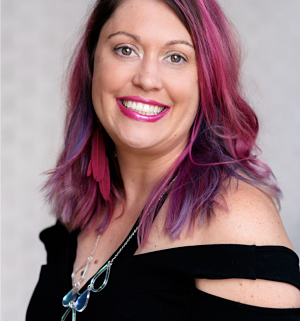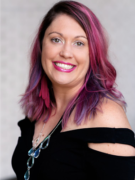On the Importance of Young Adult Fiction
I only have five minutes to make my flight. I rush to the gate, slip into my cramped seat, still breathing hard from the mad dash to the gate. I pull out my journal to write. Writing settles my nerves. It’s my safe haven. It’s my security blanket.
The well-meaning stranger next to me spots me writing in my journal. After a moment, this innocent question slips from their lips.
“What’re you writing?”
“Actually, I’m a published author,” I say, having performed this song and dance a million times before. “I’m always writing. Being an author is like always having homework.”
Cue the awkward chuckle. Now they’re interested. I have their full attention.
“What kind of books do you write?”
“Young adult science fiction mostly. I have a trilogy out.”
“Sounds fun.” But then they frown. “So, when’re you gonna write a real book?”
By real book they mean a book for adults.
Ask any kid lit author, and they’ll probably have a similar story. The details vary, of course. Sitting next to a stranger on a plane. Chatting at a cocktail party. In line for coffee at Starbucks. A stranger asks what you do for a living. You babble off something about writing young adult books. They chuckle at first. Maybe they admit that they’ve read one or two, like a dirty confession. But then their judgement comes out in the form of that innocent-sounding question coated in their own pre-conceptions. Here’s what they’re really thinking.
Grow up. Write a real book.
There’s a reason why youth movements often are the ones that seek change in our world. It’s a special time in life when a person is willing to question the current society and even topple the system.
Of course, there are a million reasons why that question speaks to their own ignorance. Kid lit books are real books. As real as any books in this world. But it also speaks to how our society—a.k.a. the adults in positions of power—often seeks to dismiss and minimize the youth experience. Mark my words; they do this at their own peril.
There is no more important task in our current world that writing for young adults. I also write middle grade fiction for Disney Publishing and believe that this task is equally vital.
In my humble opinion, kid lit is the most exciting arena in publishing. Authors in our midst are tackling hard-hitting political issues and expanding the reaches of diversity and representation in fiction. We’ve broken a lot of ground through movements like #OwnVoices, though I should note we still have a great distance left to travel. We’re pushing boundaries. Of course, many adult readers have crossed over to the dark side, lured by the temptation of gateway kid lit books that crossover to the mainstream like Harry Potter, Hunger Games, or Twilight.
Mostly, I inhabit the Sci-Fi and Fantasy genres, but don’t get distracted by the bells and whistles of space ships and advanced technology. My book The 13th Continuum grapples with highly topical and socially-relevant issues such as environmental destruction, totalitarian regimes, religious persecution, discrimination, the rich/poor gap, and more. My fiction employs the allegorical lens to examine contemporary problems.
My upcoming fiction leans heavily into LGBTQ+ and other issues, including my original graphic novels Spectre Deep 6 and 200 coming in 2020, while maintaining the fun surface veneer of space battles and ghost soldiers and future landscapes. For example, my short story Let Me In deals with topical immigration and other issues by reframing it in the context of humans seeking asylum on an alien world. This changes it from a story where people have already chosen their sides in our current political spectrum to one where all humans—regardless of their nationality, skin color, sexual orientation, etc.—are at risk and need help to survive the coming maelstrom brought by climate change (this is also Cli-Fi).
Art and literature become more important during times of repressive regimes. This is the best tool we have to question the world and what’s happening right in front of our eyes, to speak to young people, and inspire them to make it better.
There’s a reason why youth movements often are the ones that seek change in our world. It’s a special time in life when a person is willing to question the current society and even topple the system. This is specifically why it’s so exciting to write teen protagonists into my stories. They haven’t bought into the system yet; they’re willing to risk everything to change it.
Even so, I hear all the time predictions of doom and gloom. Kid lit is overrated. The bubble is going to burst. But I believe we’re only at the beginning. Young adult fiction isn’t going anywhere. If anything, it’s expanding exponentially as we incorporate underrepresented voices and stories that are too seldom told. Our readers need our stories; this world needs our stories, now more than ever. Art and literature become more important during times of repressive regimes. This is the best tool we have to question the world and what’s happening right in front of our eyes, to speak directly to young people, and inspire them to make it better.
Our fate lies in their hands. Don’t underestimate them—or those of us who write for them. They are the future. And maybe pick up a book from the young adult section if you haven’t recently. You just might get swept away and learn something important, too.
Of course, there are also stories that defy the expectations. When I first met Jim Shepard, the famed novelist and short fiction writer who also teaches creative writing at Williams College, he asked about my debut novel that I’d just sold to a publisher. I should note that Jim is everything that I’m not. He writes literary fiction, most of it for (fancy) adults. He was teaching at the program where I was workshopping. His prowess as a teacher preceded him. I was also one of the lone children’s lit writers that had been accepted, not to mention genre fiction, too.
“So, what’s your book about,” Jim asked over our lunch plates.
“Oh, it’s young adult and science fiction. You probably wouldn’t be interested.”
“No, I’d really like to hear about it,” he insisted and then listened attentively while I explained my epic sci-fi story about the surface of the Earth being destroyed and humans having to live in different colonies located underwater, underground, and in outer space.
Silence ensued once I’d finished my spiel.
“So, what you’re saying is,” he said with a glint of humor in his eyes. “You might actually make money off your book, unlike the rest of us.”
Laughter engulfed the table.
I can’t say I’ve hit the jackpot (yet). But I appreciated his interest. And I’ll keep writing for young adults, no matter what happens. I might even toss some space pirates into my next book.


 Jennifer Brody is the award-winning author of The Continuum Trilogy and the forthcoming original graphic novels Spectre Deep 6 (February 2020) and 200 (Fall 2020). Her graphic novels sold in a six-book deal and will be built into trilogies, illustrated by Jules Rivera. Her debut novel The 13th Continuum won the Gold Medal from the Independent Publisher’s Moonbeam Children’s Book Awards and is being packaged for TV. Return of the Continuums and The United Continuums complete her trilogy. Translation rights sold in multiple territories, most notably Russia and China. She is also a graduate of Harvard University and a creative writing instructor at the Writing Pad. She lives and writes in LA, where she’s hard at work on her next book.
Jennifer Brody is the award-winning author of The Continuum Trilogy and the forthcoming original graphic novels Spectre Deep 6 (February 2020) and 200 (Fall 2020). Her graphic novels sold in a six-book deal and will be built into trilogies, illustrated by Jules Rivera. Her debut novel The 13th Continuum won the Gold Medal from the Independent Publisher’s Moonbeam Children’s Book Awards and is being packaged for TV. Return of the Continuums and The United Continuums complete her trilogy. Translation rights sold in multiple territories, most notably Russia and China. She is also a graduate of Harvard University and a creative writing instructor at the Writing Pad. She lives and writes in LA, where she’s hard at work on her next book.


